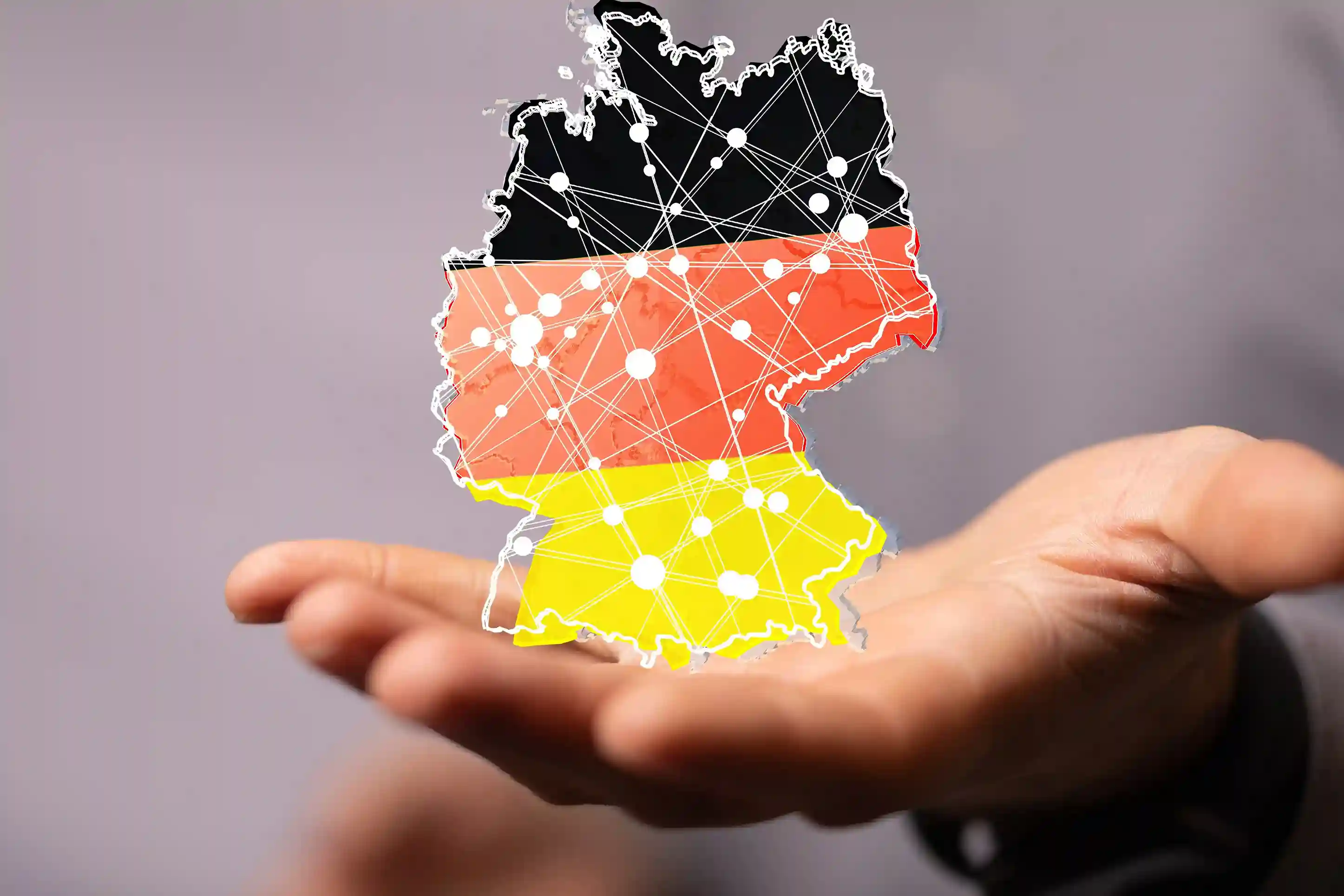Germany is a top destination for international students looking to pursue advanced studies in technology and digital security. The country’s world-renowned universities and growing demand for IT professionals make it an excellent choice for those aiming to build strong careers in information security. Students can access world-class study programmes, English-taught degrees, and excellent job opportunities in one of Europe’s top tech hubs.
Key highlights:
- Benefits of Studying a Master’s in Cybersecurity in Germany
- Master’s in Cybersecurity in Germany – Course Overview
- Best Universities for Master’s in Cybersecurity in Germany in 2025
- Tuition Fees of the Top 4 Master’s Programmes in Cybersecurity in Germany
- Eligibility & Admissions: Master’s in Cybersecurity in Germany
- Career Opportunities After a Master’s in Cybersecurity in Germany
- Average Salary Range After a Master’s in Cybersecurity in Germany
- Best German Cities for Securing Top Cybersecurity Jobs

Benefits of Studying a Master’s in Cybersecurity in Germany
Germany offers several advantages for international students pursuing a Master’s in Cybersecurity.
Leading Tech Hub
The country has many tech companies, innovative startups, and prestigious research institutions that heavily invest in cybersecurity and computer science development.
Strong Job Market
The digital transformation across industries has created a huge demand for cybersecurity professionals across Germany.
Academic Excellence
German universities maintain global recognition for their robust academic standards and hands-on learning approaches.
International Environment
With over 4,00,000 international students, Germany provides a multicultural study experience.
Work Opportunities in Germany
International students can work up to 140 full days or 280 half-days per year, or up to 20 hours per week during lectures, with unrestricted work during semester breaks. After graduation, students can apply for an 18-month job seeker visa to find employment. Those with a job offer can directly apply for a residence permit for qualified employment.
Master’s in Cybersecurity in Germany – Course Overview
A degree in cybersecurity, especially an advanced one, is designed to build a community that not only deals with the ever-increasing cyber threats across the world but also shapes the future of data protection and cybersecurity management.
| Course Detail | Information |
|---|---|
| Degree |
|
| Duration |
|
| Language |
|
| Intake |
|
| Core Areas |
|
Best Universities for Master’s in Cybersecurity in Germany in 2025
Here are the top universities offering English-taught programmes in Cybersecurity in Germany, designed for international students.
- The Brandenburg University of Technology
- University of the Saarland
- Technical University of Applied Sciences
- Arden University
- GISMA Business School
- International University of Applied Sciences
- SRH Berlin University of Applied Sciences
- University of Bonn
Tuition Fees of the 4 Popular Master’s Programmes in Cybersecurity in Germany
Here are tuition fees and other details for four popular Master’s programmes in Cybersecurity in Germany.
| University | Programme | Language | Duration | Tuition Fees |
|---|---|---|---|---|
| The Brandenburg University of Technology | Master of Science (Cyber Security) | English | 4 semesters | ~ €375 per semester |
| Arden University | MSc (Cyber Security) | English | 1 year (Full-time) | ~ €15,000 per year |
| GISMA Business School | MSc Business Management and Cybersecurity | English | 2 years (Full-time) | ~ €24,000 (Total cost) |
| International University of Applied Sciences | MSc Cyber Security | English | 24 months | ~€15,000 (Total cost) |
Eligibility & Admissions: Master’s in Cybersecurity in Germany
While each German university may have specific admission criteria, here are some general requirements for international students planning to pursue a Master’s in Cybersecurity in Germany:
- A bachelor’s degree in computer science, information technology, or a related field is required.
- Since many programmes are taught in English, students must showcase language proficiency through tests such as the International English Language Testing System (IELTS) or the Test of English as a Foreign Language (TOEFL).
- Complete academic transcripts from previous education showing grades and coursework completed.
- Statement of Purpose (SOP) or Motivation Letter
- Letters of Recommendation (LORs)
- Curriculum Vitae (CV)
- Additional Requirements: Some programmes may require Graduate Record Examination (GRE) scores, proof of relevant work experience, or technical portfolios
Application Deadlines:
- Summer Intake: Apply by mid-January; course commences from April
- Winter Intake: Apply by mid-July; course commences from October
Career Opportunities After a Master’s in Cybersecurity in Germany
Cybersecurity graduates find excellent opportunities in IT departments, specialised cybersecurity firms, government agencies, research institutions, and sectors such as banking and healthcare.
Here are some common job roles you can look for after completing your Master’s in cybersecurity.
- Information Security Analyst
- Cybersecurity Consultant
- Security Software Developer
- Network Security Engineer
- Risk Analyst
- IoT Security Specialist
- Automotive Security Analyst
- Chief Information Security Officer
- Cross-Platform Security Manager
- Information Security Administrator
- Data Security Manager
Average Salary Range After a Master’s in Cybersecurity in Germany
The average starting salaries of Cybersecurity professionals range from €45,000 to €60,000 annually, with experienced professionals earning over €80,000. Professionals holding certifications like CISSP (Certified Information Systems Security Professional), CISM (Certified Information Security Manager), or CEH (Certified Ethical Hacker) tend to draw higher salaries.
Also Read: Germany Study Visa Process: A Guide for 2025
Best German Cities for Securing Top Cybersecurity Jobs
Cities like Berlin, Munich, and Frankfurt are the best places in Germany which offer numerous job opportunities in cybersecurity. They are major job hotspots because they are home to numerous tech startups, major German corporations, and financial headquarters, all of which actively hire for digital security roles.
So, is Germany the right choice for pursuing a Master’s in Cybersecurity? Absolutely. Germany stands at the forefront of IT innovation and infrastructure. A cybersecurity career in Germany promises both professional fulfilment and the chance to protect the digital future.
However, studying abroad can be expensive. Beyond tuition, there are visa fees, accommodation, study materials, and local transportation costs, which can be overwhelming. At Avanse Financial Services, we believe finances shouldn’t hinder ambitious students. Therefore, we offer customised education loans for study abroad that cover tuition, living expenses, travel, and education-related costs. Our loan for students offers 100% financing, quick sanctions, and flexible repayment options. You can use our educational loan EMI calculator to plan your monthly payments effectively. Connect with us to take the next step toward your global educational journey.










